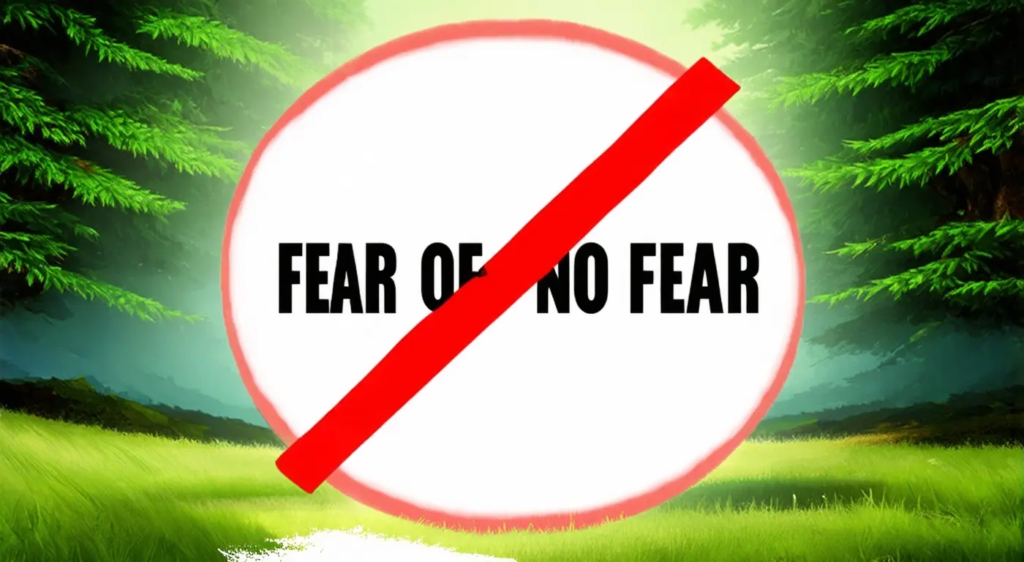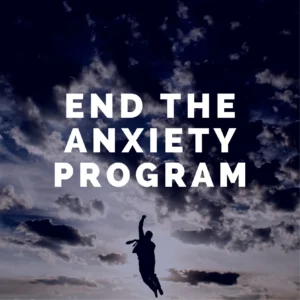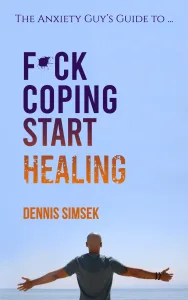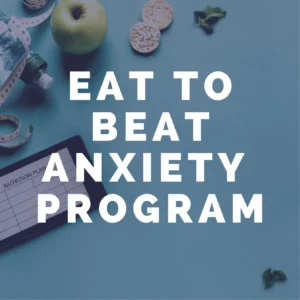Welcome to the number one health anxiety podcast with Dennis Simsek, where Dennis shares crucial lessons on health anxiety that have worked to heal thousands worldwide over the past 15 years. Despite your best efforts, health anxiety persists despite various approaches to overcome it. Today, we explore why.
Introduction
This podcast is sponsored by the Health Anxiety Recovery Program, designed specifically to get to the root causes of your health anxiety and begin finding freedom from your mental and physical symptoms starting today.

Personal Experience and Overview
My friends, health anxiety is a challenge I know well. Having suffered from it for many years and helping thousands of people worldwide to heal their health anxiety for good, I’ve consistently seen some unnoticed habits that perpetuate health anxiety. Let’s get right into the three reasons why your health anxiety is still sticking around.
Reason 1: Fear of Not Fearing

The Addiction to Suffering
You fear not fearing, while also fearing the idea of truly living. There’s a fear that says, “If I stop fearing, the worst could happen.” But there’s also a fear that says, “If I start living, I’m also afraid of that because of potential consequences.”
Fear as a Safety Mechanism
Fear has become your safety mechanism. You believe that fear has protected you and created positive results in your life. Unconsciously, you think that it’s fear that has kept the worst from happening. So giving up irrational fear seems daunting. The idea of moving beyond health anxiety is appealing, but there’s a part of you that fears leaving this world of irrationality. You worry that without the constant fear, the physical illness might show up, or you might get injured.
The Reality Check
Here’s the reality: fear offers no protection. As you sit in the doctor’s office, enveloped by fear, recognize that it’s not this emotion that has maintained your health. When you find yourself in the waiting room and that well-known fear persists despite your surroundings, remind yourself that it hasn’t been the architect of your positive health outcomes. Let the fear diminish, making room for a new feeling or perspective to emerge.
Fear of Truly Living
Another aspect is the fear of truly living. Many people with health anxiety feel they don’t even know who they are anymore. Years of living a life of suppression, confined by mental, emotional, physical, and behavioral comfort zones, have made the idea of inner peace seem far-fetched. Stepping out of this constrained way of living and into a freer space feels intimidating.
Baby Steps to True Living
To overcome the fear of truly living, start with baby steps. For instance, begin to identify with someone who is capable of laughter and joy. Relearn how to smile, help others, or ask for help. These small actions can prove to yourself that you can live beyond the confines of your old comfort zones and move towards inner peace.
Recognizing Lies
A key step is recognizing that you’ve been feeding yourself lies. You’ve been telling yourself that fear protects you, but it doesn’t. Understand that fear is not the very thing protecting you from physical harm. When you feel fear, allow it to be there without reacting to it, and gradually let it go. This process helps you realize that you don’t need fear to stay healthy, and you can begin to trust in the reality that living a fearless life is possible, even if your health anxiety persists despite your efforts to overcome it.
Reason 2: Your Identity Tied to Health Anxiety

Lower Self and Personality
Your lower self has connected health anxiety to your personality. You’ve bought into the idea that you are a hypochondriac. This identity can show up even during conversations, causing you to check your symptoms and lose focus. For many years, this was my reality. During conversations, my lower self would remind me that I was a hypochondriac. This led to constant checking of my sensations or symptoms, causing me to lose the flow of conversation and the connection with the person I was talking to.
Disidentification from Health Anxiety
It’s crucial to understand that you can give yourself permission to be different. When your lower self reminds you of being a hypochondriac, allow the anxious feelings to be there without reacting to them. This means that instead of trying to suppress these feelings or pushing them away, you acknowledge their presence but continue with your current activity. Whether you’re engaged in a conversation, in a new environment, or performing a creative act, let the feelings of anxiety be there without needing to respond to them consciously. This approach helps you maintain your focus and composure, even if your health anxiety persists despite your efforts to overcome it.
Breaking the Habit of Hyper-Vigilance
We frequently feel an urge to act each time we’re confronted with the reality that our health anxiety persists despite our best attempts to quell it. This relentless hyper-vigilance ensnares us in a perpetual state of worry. It’s crucial to understand that not every wave of anxiety demands action. By permitting these emotions to be present without immediate reaction, you initiate the process of dismantling the relentless cycle of anxiety and heightened alertness.
Embracing a New Identity
Start to disassociate from being a health anxiety sufferer. Recognize that health anxiety is based on mental, behavioral, verbal, and emotional patterns, not who you are. This is a powerful shift. Begin to see health anxiety as something you do, not something you are. This perspective allows you to explore and embrace your true identity beyond the confines of health anxiety.
Finding Joy in Rediscovery
As you disassociate from health anxiety, you may wonder, “Who am I really?” This is where the journey gets enjoyable. Start exploring aspects of your personality and life that have been overshadowed by health anxiety. Engage in activities that bring you joy, connect with others in meaningful ways, and allow yourself to experience life without the constant burden of anxiety persists despite your efforts.
Practical Steps to Reinvent Yourself
- Acknowledge the Lower Self: When anxious thoughts arise, recognize them as patterns of your lower self, not as your true identity.
- Practice Non-Reaction: Allow anxious feelings to be present without reacting to them. This reduces their power over you.
- Engage in New Activities: Explore hobbies and interests that you may have neglected. This helps build a new sense of self.(4)
- Connect with Others: Build relationships based on your true self, not on the identity tied to health anxiety.(2)
- Seek Support: Don’t hesitate to ask for help from others. Sharing your journey with supportive people can reinforce your new identity.
By following these steps, you can begin to disidentify from the old patterns of health anxiety and move towards a more peaceful, fulfilling life.
Reason 3: Addiction to Hyper Stimulation
The Challenge of Meditation
Many people with health anxiety find it hard to meditate because they are used to a state of hyper arousal. This internal panic alarm is always on, making it difficult to sit still and relax. People often say, “I just can’t seem to meditate,” or “I can’t sit there for three, four, or five minutes.” This is because we have become so accustomed to this feeling of hyper arousal, where the body’s internal panic alarm is constantly set off.
Hyper Arousal and Everyday Life
Even mundane activities can trigger this state of anxiety. For example, watching paint dry can lead to thoughts like, “Is it really drying? How long will it take?” These constant question marks bring us back into a state of anxiety that persists despite our attempts to relax. We have become addicted to this state of hyper arousal, and it impacts our daily lives significantly.
Reducing Stimulation
To combat this, you must start becoming more comfortable with non-stimulation. This means reducing time spent on your phone, comparing yourself to others, and engaging in activities that fuel anxiety. It’s crucial to step away from habits that keep your mind in a constant state of alertness.
Avoiding External Triggers
Be mindful of your environment and its impact on your emotional state. For instance, spending time in the city or visiting busy cafes can unknowingly contribute to your anxiety. Even background music, like the top 40 pop songs you hear in North America, can trigger sensations and thoughts that lead to mental changes and continuous chatter in your mind.
Mindful Environment Choices
You must become aware of the things your subconscious mind is absorbing. Unconscious communication with the environment and people around you can contribute to your anxiety persists despite your efforts. For example, if stress is the predominant emotional state in a particular environment, you will likely take on that stress even if you entered in a positive state. Therefore, choose your environments wisely and ensure they align with the person you are working towards becoming.
Replacing Negative Habits
The best way to give something up is to replace it with something else. For instance, if you decide to stop visiting a stimulating cafe, find another place that is more calming and supportive of your goals. The same goes for other habits—replace negative, stimulating activities with positive ones that promote peace and relaxation.
Practical Steps to Reduce Hyper Arousal
- Limit Screen Time: Reduce the amount of time you spend on your phone and other electronic devices.(1)
- Mindful Social Interactions: Surround yourself with people who contribute positively to your mental state.(2)
- Choose Calming Environments: Select places that promote relaxation and avoid those that trigger anxiety.
- Engage in Relaxing Activities: Find hobbies and activities that calm your mind, such as reading, walking in nature, or practicing yoga.
- Create a Peaceful Routine: Establish a daily routine that includes time for relaxation and self-care.(3)
By addressing your addiction to hyper arousal through stimulation, you can significantly reduce your health anxiety and move towards a state of inner peace.
Conclusion
I hope these insights help you understand why health anxiety persists despite your efforts. Remember, fear is not protecting you, your identity is not tied to health anxiety, and reducing stimulation can greatly improve your well-being.
You are more than anxiety. Have a wonderful day, and see you in the next episode.
If you are enjoying this podcast, please subscribe and give it a positive rate and review. Also, don’t forget to check out the original Anxiety Guy podcast on iTunes with new episodes airing every Monday morning Pacific Standard Time. Remember, you are more than anxiety.
References
- Increased Screen Time as a Cause of Declining Physical, Psychological Health, and Sleep Patterns: A Literary Review
- Hypochondria and Interpersonal Relationships
- Coping resources mediate the prospective associations between disrupted daily routines and persistent psychiatric symptoms: A population-based cohort study
- Association of Enjoyable Leisure Activities With Psychological and Physical Well-Being




